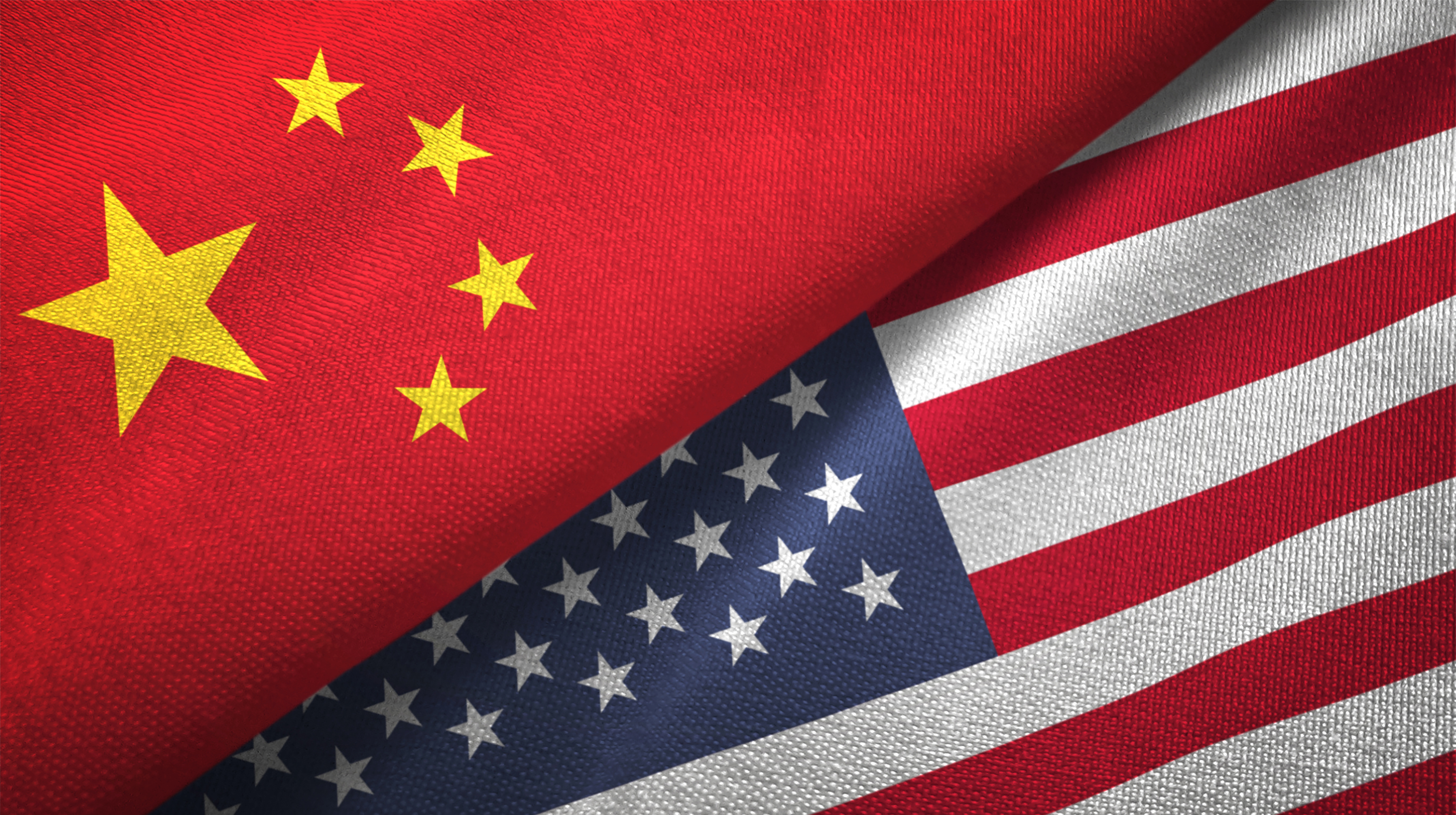The world-renowned development economist Jeffrey Sachs outlined a new framework for US-China relations in conversation with INET President Rob Johnson
With the latest Biden administration accusations that China is responsible for hacking US companies’ email systems, US-China relations took yet another turn for the worse. While the administration has not yet indicated whether there would be any repercussions, the accusation feeds into the predominant narrative of the foreign policy establishment that China is neither a partner nor competitor, but actually a current or likely future enemy.
Does this bipartisan foreign policy view on China proceed from false assumptions and faulty principles? Is there a possibility for a new framework of cooperation between the US and China to create a more peaceful and sustainable world? The world-renowned development economist Jeffrey Sachs, who is Director of the Center for Sustainable Development at Columbia University, recently outlined such a framework for US-China relations in an extensive audio interview (with transcript) with Rob Johnson, president of the Institute for New Economic Thinking, for the podcast, “Economics and Beyond with Rob Johnson” (also available as an abridged videocast).
According to Sachs, US-China relations ought to revolve around several key principles that are quite different from the ones that the US has been pursuing ever since China’s GDP nearly reached the size of the US’s GDP (or even exceeded it, in PPP terms in 2017). In a reoriented US-China policy framework, the relationship would revolve around cooperation instead of competition, the acceptance of independent economic development, abandonment of an imperial mindset, and the domestic management of negative international trade impacts.
First, regarding competition versus cooperation, Sachs says, “We need a world in which cooperation is the dominant mode, whether that’s to fight a pandemic or to fight climate change or to promote development. We can’t do this in a divided world.” These issues are too serious to be left to a competitive framework, which would only result in distrust, a waste of resources (such as in new arms spending), and a futile struggle for hegemony with huge risks of open conflict. This ought to be obvious, but it is not, mainly because much of the US establishment sees China as an enemy that must be contained before it’s too late.
This leads to the second principle of allowing for independent economic development. Sachs explains that, historically, “American policymakers believed China would become wealthier and it would develop, but under the wing of the United States. We would be clearly in the technological lead, we would be organizing global principles, and there would be a place for China just like there would be a place for the whole world in development.” Viewing China’s economic development through the lens of economic subordination to the US leads to dangerous consequences, where we miss opportunities to “decarbonize our energy systems, solve problems of transport and mobility, help poor people get educations,” says Sachs.
When China rejected economic subordination to the US and decided to pursue an independent path of economic development, the US wrongly interpreted this as a form of aggression. The US thus proceeded to surround China diplomatically and even militarily, “circling the South China Sea while we openly talk about the Quad countries of Japan, Korea, Australia, India as the protection against China.” Of course, China has not taken this diplomatic and military encirclement lightly.
The third principle the US needs to adopt is that of letting go of its imperial mindset. According to Sachs, English imperialism from the 17th century to the first half of the 20th century “was transferred to the Anglo-American political culture in the 19th century, marked by ‘manifest destiny’ and the rise of the US as a global power. As soon as the US wars of extermination and genocide were completed against Native populations, the Anglo-American vision spilled out into building an overseas global empire. This started first in the Caribbean, the Philippines, and coastal China. It’s the foundational myth of 20th century America that our manifest destiny is also a global destiny.”
This perceived global destiny turned into a dangerous national perception that the US can do whatever it pleases on the international stage, rejecting international institutions at its will. For example, Sachs highlights that “the United States has walked out of the Paris Climate Agreement under Trump, walked out of the World Health Organization under Trump, walked out of UNESCO, cut aid, behaved atrociously, imposed unilateral sanctions.” One could say that this is all Trump’s doing, but Biden has barely acknowledged the damage his predecessor caused, and in some cases, such as with the sanctions on Cuba, Venezuela, and China, has not reversed or even eased the Trump policies.
Sachs points out that China, however, is interested in adhering to international law and working within a global multilateral framework, “because they see that with international law they wouldn’t be held back, they would be responsible for their own development.”
Finally, the fourth shift in principles relates to the management of international trade, where the US has been largely responsible for allowing China to become a global player. However, when China began to enjoy success in advanced technologies, at times even outpacing the US in manufacturing and innovation (as in the case of Huawei and 5G technology), not only has the US simply claimed that China is cheating but under Trump has claimed that China’s successes have come directly at the expense of the American people. This has especially riled up anti-China sentiments in the US industrial heartland.
Sachs points out that the economic theory that increasing international trade leads to greater economic growth remains true. However, unequal benefits can indeed result from this trade-led economic growth. The resulting inequalities, however, should be addressed through domestic policies (such as income redistribution), rather than trade protectionism. If the US had properly treated the decline of manufacturing in the industrial heartland as a domestic issue, and not an anti-China issue, it would have made sure that those who lost jobs or wages because of US trade with China would have found employment elsewhere, or would have been bolstered by transfer payments of some kind. Sachs brings up the social democratic model, found in countries like Sweden, which “was really always based on that idea that we shouldn’t resist productivity increases, new technologies, and international trade, because everyone will get taken care of through active social policies. A bigger pie will end up in more vacation time, more leisure time, and better healthcare for all workers, not just the lucky few.”
Instead, the US libertarian ideology treats those who fall behind in the economic system as “losers”–not just economic losers, but also moral losers–who do not deserve to benefit from state-provided economic relocation and support. “In the American mindset, and it’s a complicated cultural mindset–it goes back to John Locke, it goes back to the Puritans, it goes back to the prosperity gospel, it goes back to racism–the mindset is, if you lose, that’s tough but you’re probably a loser. And if you’re depending on somebody else’s help, you’re really a loser.” Rather, Sachs says, “The right way to handle an issue of inequality [due to trade] is through U.S. redistribution rather than closing down global trade. You close down global trade, everybody loses.”
The Chinese have a very difficult time understanding this American mindset, argues Sachs, as the Chinese ask, “If you have some people that need help, why aren’t you giving them the help? Why are you blaming us?” China does not have this same difficulty with Europe, though, “because in Europe … the social democratic ethos is pretty pervasive.”
Taken together, these four shifts in foreign policy principles: from competition and conflict to cooperation, from non-acceptance to acceptance of independent economic development, from an imperial to a non-imperial mindset, and from blame of China to domestic responsibility for the unequal consequences of trade, would lead to a far more constructive relationship with China, one in which we could more effectively address the pandemic, the climate crisis, and avoid war.
As Jeffrey Sachs and Rob Johnson both point out in their conversation, none of these issues means that China is beyond reproach for human rights issues. Indeed, every major power – the US, China, European Union, and others – share the common responsibility to abide by the Universal Declaration of Human Rights, and both China and the US can do better on this account. According to Sachs, for the US to single out China’s shortcomings is self-serving, hypocritical, and unconstructive. He believes that the US should be working together with China, the European Union, and other parts of the world to strengthen the UN human rights system under international law and in line with the UN Charter.





